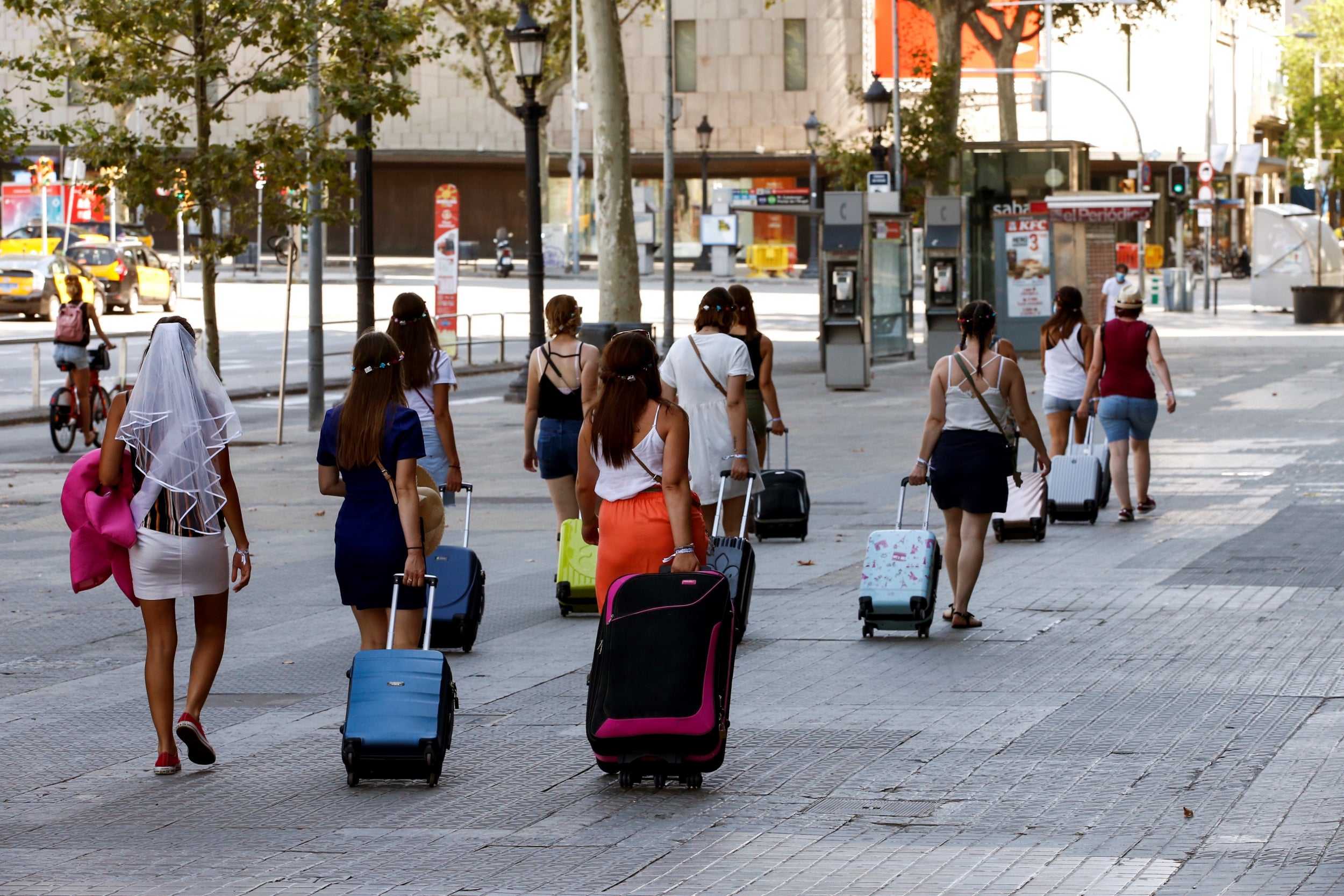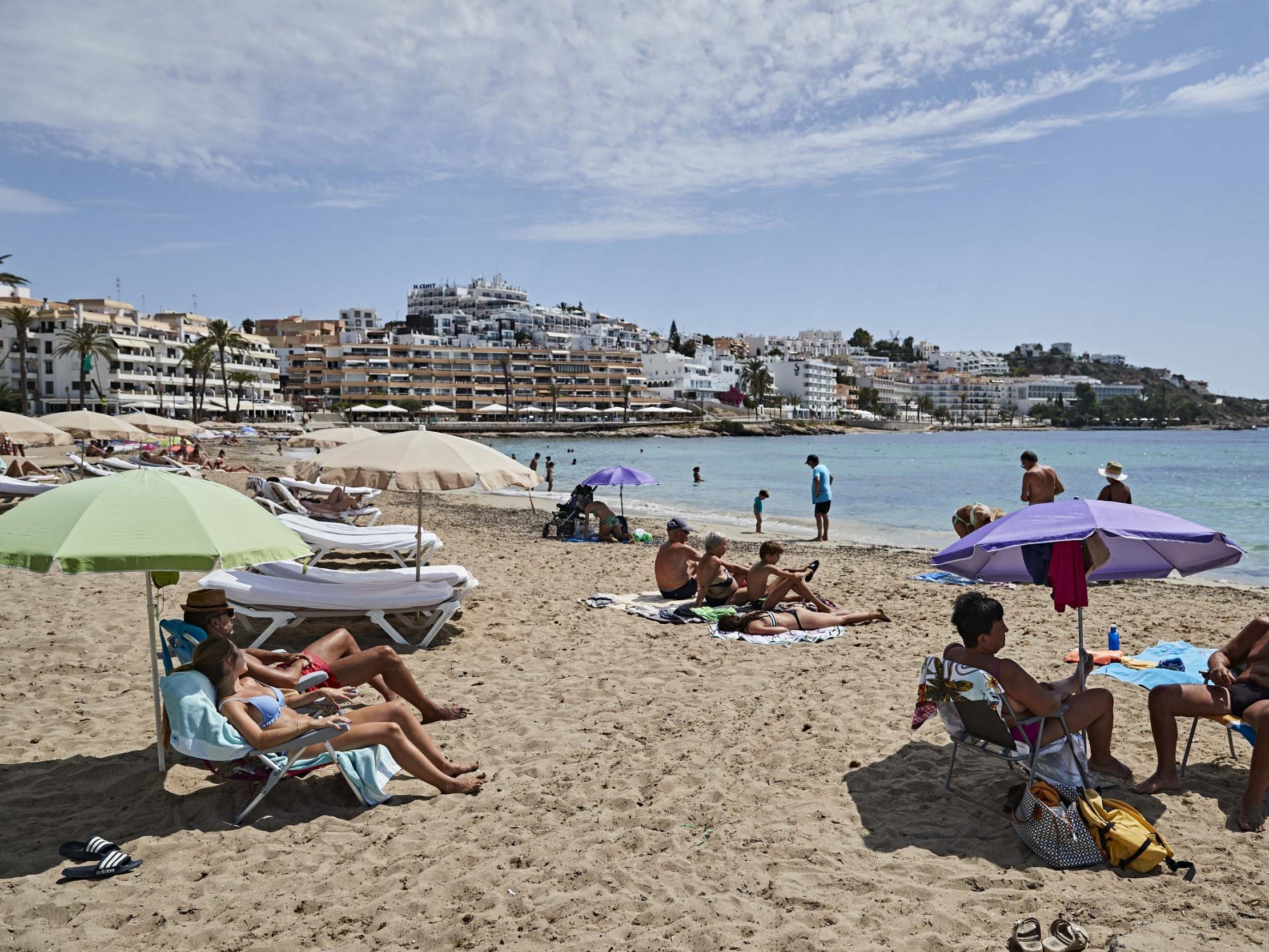‘Grossly unfair’: UK’s new quarantine rules for Spain prompt anger and confusion
British tourists in Barcelona tell Graham Keeley they weren’t given enough time to prepare for the changes


At this time of year, Barcelona should be one of the most popular tourist cities in Europe, if not the world.
Instead, it has become Ground Zero of Spain’s tourism implosion.
A week after Britain announced a 14-day quarantine for travellers from the Iberian nation to the UK, Spain’s efforts to revive its tourism sector are in free fall as Covid-19 cases show no sign of relenting.
Nearly six weeks after Spain ended one of Europe’s strictest lockdowns, the number of cases per day has risen by eight times from 334 on 20 June to 2,789 between 29-30 July. Across the country there are 483 outbreaks, Spanish health authorities said, but most are said to be under control.
Catalonia, capital to Barcelona, along with Aragon and Navarre, were regions with the fastest rising number of coronavirus cases, prompting not only Britain but France and Germany to warn their citizens against all but essential travel to these areas.
Yet even before this, the difference between a normal year was easy to see in Barcelona.
Last year, 18 million Britons holidayed in Spain, about 20 per cent of the total of 83.7 million, according to data from the Spanish National Statistics Institute (INE).
Catalonia was always one of the most popular places to visit, as much for the charms of Antoni Gaudí’s architecture as nightlife and beaches.
However, in the wake of the Covid-19 epidemic all this has changed.
On the face of it, the bars and restaurants in Barcelona are full enough.
However, look carefully and it is the “pavement traffic” – or lack of it – which is so telling.
Last year, at the start of August, it was hard to walk along the streets as throngs of tourists blocked the way. Not so now.
For tourists caught up in the quarantines, diplomatic rows and ruined holidays, it has been bewildering.

Katrina Kasim, 35, an accountant from Manchester, was on a one-week holiday to Barcelona when she learned the British government had imposed the quarantine.
“We were supposed to be going to Poland after Spain but because of this quarantine we cannot take our flights for a second holiday and we will probably lose £600 in total,” she tells The Independent.
“I also had activity camps for my two sons which cost £650 in total when we were back in Manchester. They cannot go to those now.”
Ms Kasim says that more people appeared to be wearing masks in Spain than back home in Manchester.
Even essential workers like nursing assistant Jennifer Brown have not escaped the 14-day quarantine, despite holidaying in the Basque Country in northern Spain where the number of coronavirus cases has been substantially lower than other regions.
Ms Brown, 49, from High Barnet, in north London, says when she returns home her hospital said she must go into quarantine, forcing her to take two weeks unpaid leave.
“Britain was slow to quarantine during the first wave which cost many lives, so I am relieved that they are reacting more quickly. Travellers from certain areas of Spain definitely need to go into quarantine to protect the UK,” she says.
“However, it is grossly unfair that we were given six hours to return home to avoid two weeks of quarantine. A blanket quarantine on all travellers from all areas is surely unnecessary.”
She adds: “We have been staying in Asturias and the Basque Country – two areas with very few cases. So it is pretty galling that on our return to the UK next Monday, we will go into quarantine meaning two weeks without a salary despite risking very low areas.”
Before the British quarantine order, some in the tourism industry had dared to hope they might be able to salvage something from the season as visitor numbers were slowly creeping up.
British restaurateur Kate Preston, who is based in Barcelona, says: “I’d say that the effect is negative. We started to see a slight increase in the week previously, which was very encouraging.
“The outbreaks here [in Spain] have only been confined to quite specific areas off the tourist trail and the quarantine felt heavy handed at the time. Everybody uses masks here, social distancing, and bars are closed so in a tourism environment it is a lot safer than in the UK.”
A blame game has broken out between tourist chiefs and politicians of all persuasions.
Roger Pallarols, director of Gremio de Restauracion de Barcelona, an association of restaurant owners, said: “The action of the British government is a tough blow against tourism in Barcelona. It reflects a lack of confidence which the Catalan government is to blame for its confusing, contradictory and at times alarming messages.”
On 10 July, the Catalan government asked 4 million people in Barcelona and outlying cities to stay at home as Covid-19 cases rose dramatically. Authorities closed cinemas, theatres and other establishments but it did not make the lockdown order compulsory, leading some critics to claim the measure would not work.

Authorities in Catalonia have insisted they have worked well to tackle the coronavirus crisis.
Tourism-dependent Spain relies on this sector for 12 per cent of GDP and 13 per cent of jobs, according to INE.
Now most leading figures in the sector have effectively written off the season which means haemorrhaging jobs.
Spain’s left-wing government initially sought to argue with the UK government that the Canary and Balearic Islands should be an exception to mainland because their levels of infection were substantially lower to that of mainland Spain.
In the Balearics the figure was 8 cases per 100,000 of population, while in the Canary Islands it was 5.8 per 100,000. In comparison, the figure in Britain was around 6.95 per 100,000.
Madrid hoped they could persuade London to set up air corridors with the UK to salvage the tourism industry on the islands.
In the Canary Islands, tourism accounts for 35 per cent of GDP, while in the Balearic Islands it provides about 27 per cent of GDP, according to INE data.
However, this cut no ice with the British government which said the advice not to travel to Spain would be extended to the islands.
Xavier Pasquet, tourism director in Calvia in Majorca, which includes Magaluf, where videos of gangs of British and German men partying in the streets of the resort without social distancing sparked fears tourists would spread coronavirus.
Calvia council responded by closing down the “strip” which had been the scene of the antics.
Mr Pasquet said: “We found the [UK] advice confusing. First they exclude us from the ‘only essential travel advice’, then they say people must undergo quarantine.
“We are a safe destination that offers the same level of health or more than the UK itself, therefore a safe corridor with the Balearic Islands – and the Canary Islands would make sense.”
Join our commenting forum
Join thought-provoking conversations, follow other Independent readers and see their replies
Comments